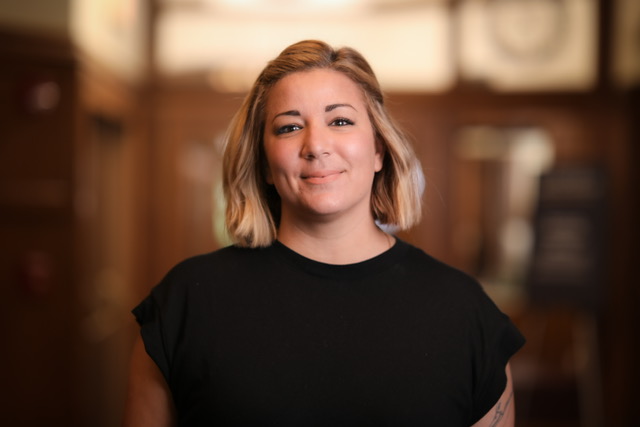"Thinking Against the World"
This talk engages contemporary theory and artistic practice of unworlding and world-breaking against those of worlding and world-building that have come to otherwise dominate eco-criticism and art in the Anthropocene. Worlding as both a visionary, often speculative literary practice, as well as a broader production of a (new?) place and time (an otherwise), has been cultivated through a set of ethics that has, largely through decolonial, queer, anti-capitalist and indigenous epistemes, imagined the world and life in/on it as entangled, enmeshed, and nonhuman-non-blood-relation-kin-making.
This talk is inspired instead by a constellation of concepts like unworlding (Halberstam), the Black horizon (Chipato and Chandler, via Wynter) and negative life (Tremblay and Swarbrick), that arguably mark a shift in ecological thought away from connectivity and entanglement, and towards a kind of confrontation with the unknowable and perhaps un-relatable. To that end, this talk will think further about the relation between the world and “the weird” as possibly antithetical to one another: the former a settler-colonial fantasy of coherence and connection, and the latter a literary genre and broader theoretical concept that confronts the ways in which unknowability defines experience and environmental relations (i.e.“global weirding”).
The talk will draw from thinkers above, as well as a range of texts including blog entries on weird thresholds drawn from Mark Fisher’s K-Punk, Ursula Le Guin’s strange world(s)-destroying novel The Lathe of Heaven, Andreas Malm’s The Destruction of Palestine is the Destruction of the Earth, Chappell Roan’s “Good Luck, Babe!” and to works by Brazilian sculptor Juliana Cerquira Leite and Korean-American artist Johanna Hedva. The talk and discussion will ask what it means to “think against the world” not as an inherently antisocial act, but as one operative against structures of power that constitute and construct the myth of the world in its increasingly horrific form(s) today.
Alison Sperling is an Assistant Professor of English at Florida State University. Her research focuses on weird and science fictions in literature and the arts, with critical emphases on eco-criticism and queer and feminist theory. She has published or has work forthcoming at the convergence of these fields in Rhizomes, Cultural Politics, Girlhood Studies, Symplokē, and Paradoxa, is in numerous edited collections in science fiction studies, and recently has published essays in a number of artist monographs. She is the editor of "Climate Fictions" (Paradoxa, 2019) and co-editor of "Weird Temporalities" (Studies in the Fantastic, 2020), "Anthropocene Sublimes" (Ecozon@, forthcoming), "Weird Geographies" (Cultural Politics, forthcoming), and "Science Fictional Ecologies and Contemporary Art" (Extrapolation, forthcoming). She is currently finishing her first book manuscript, Weird Modernisms.


